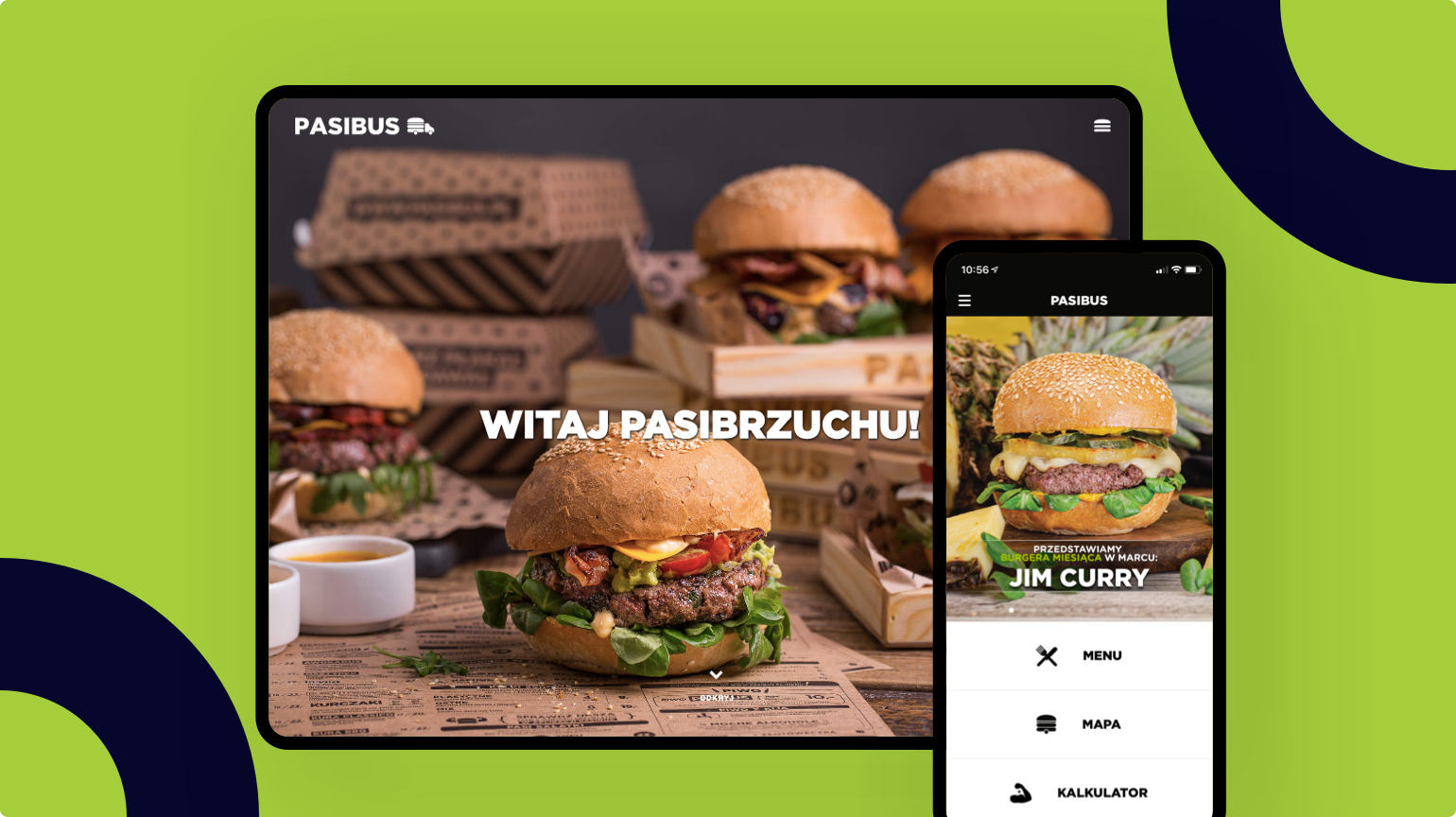Enterprise software
How is mobile app development different for enterprise?
Enterprise software has unique requirements. Your goal isn’t just to build an app that works, which is usually how young tech start-ups operate. Getting an enterprise app to work is only a part of the process. Along the way to release an enterprise mobile app, you need to also take care of:
▸ Defining precise business requirements for the app,
▸ Compliance with security / data governance standards,
▸ Integrating with legacy infrastructure,
▸ Ensuring smooth adoption for workers / customers.
Because of this, the scope of enterprise mobile app projects is usually much broader compared to start-ups or SMBs.
What matters in enterprise apps

Security and compliance
At the enterprise scale there’s a lot of sensitive data. Hackers want to steal it, and policymakers want to fine you for how you collect, manage, and store it.

Integration
Enterprise apps are rarely standalone software. They need to fit into your existing infrastructure, and connect with other tools that your team uses.

Reliability
These apps need to be functional and bug-free for users, but also reliably designed and coded. This way it’s much easier to upgrade, change, and scale them over time.

Increasing ROI from Enterprise Mobile Apps
How to streamline enterprise mobile projects, and drive them smoothly to the finish line
Types of Enterprise Mobile Apps
Organizations in all industries can benefit from introducing mobile apps into daily operations. Some of the most popular types of enterprise mobile apps are:
-
- Communication – secure tools to chat, talk, and hold videoconferences
- Collaboration – digital asset repositories that let people collaborate seamlessly
- Security – digital signatures, two-step sign-in verification, alert notifications
- Relationship management – mobile CRM apps
- Training – apps for managing in-house training initiatives
- Productivity – work assistant apps that provide ways to be more productive
- Resource management – apps for keeping track of assets and resources
- Customer-facing – ecommerce apps, catalogues, discount alerts, mobile experiences
”Why” is just as important as “how”
The software architecture, technology stack and development methodology are crucial. But the idea behind the app is no less important. Refining the idea, and honing in on the most important features, can actually save time later during development.
One way to refine your app idea is to involve end-users in the design process. Collecting information about user preferences can help developers and other project stakeholders make better decisions.
It’s all in the details. An app for field workers in the Transportation industry should be optimized for long battery life, because a device that loses charge quickly can disrupt operations. Whereas a customer-facing app in the Education industry should be optimized for performance, because they’ll likely spend short amounts of time using it, and delete it if the app feels clunky and slow.
The worst thing to do is to make a mobile app just for the sake of having a mobile app, with no clear purpose and no interesting features.
Choosing reliable technology
Being too innovative in enterprise projects can create unnecessary problems over time. New, hyped up technologies are definitely exciting, but they can crash in unexpected ways.
For enterprise mobile apps, meant to withhold long periods of time and high numbers of users without breakdowns, it might be better to go with mature, tried & tested technology. Especially when it comes to the core features of an app. Mature technology has the benefit that if something goes wrong, developers can find and fix issues faster. This means less risk of downtime for your workers or customers.
When it comes to the newest technologies, problems take longer to locate and solve. For this reason, it’s good to be careful about using the latest tech for mission-critical components. When it comes to mobile apps, it’s especially tempting to make it faster, prettier, and more useful than the competition. Be careful not to overdo it.
Removing unnecessary complexity
Enterprise software is unparalleled when it comes to requirements. It needs to handle a multitude of edge cases, and provide a lot of functionalities that may seem unnecessary for the uninitiated. Whether it’s for consumers or your teams, the application has to meet the highest standards in usability, design, performance and security.
Robust enterprise software has to be built by experts who know how to translate complex requirements into cleanly coded business logic.
Validating decisions
If you’re involved in an enterprise app development project, you’ll be faced with multiple considerations:
- What are the key outcomes for end-users?
- Which are the most important features?
- Open-source technology, or proprietary?
- Who can get access to the app, and how?
- How does it need to integrate with existing tools?
...and this is just the tip of the iceberg.
In the enterprise environment, decisions are never made based on a hunch. A lot of analysis goes into choosing what an application should do, and how.
It’s important to analyze and validate decisions quickly, because it means developers will be able to finish the project sooner. Depending on your financial agreements with the software provider, this can translate into real savings.
When prolonged too much, decisions become a bottleneck in the app development process. In case you don’t have the expertise to make technological decisions, make sure to work with an advisor, or with a software provider that has experience building enterprise mobile apps.
Project Completed
Talents on Board
Countries We Work With
Years in Business

NYOUM: LOVE. A communication platform of a new kind.
We developed an Android version of our client's revolutionary audio and video messaging platform, LOVE.

Pasibus: Tasty Website and Mobile App
We built a comprehensive digital solution for a popular restaurant chain - and in our opinion, the best burger-makers in Poland!
Got questions?
What industries do we have experience with?
Over the past few years, we've designed and developed custom solutions software for a diverse range of industries. These include healthcare, automotive, manufacturing, e-commerce, retail, travel, transportation, real estate, FMCG, education, fitness, lifestyle, and more. We have experience collaborating with startups, SaaS companies, and enterprise-level organizations. You can find examples of our work in our portfolio.
Can we take over a project developed by another company?
Absolutely! We're more than willing to take on such projects. However, our initial step would involve analyzing the project in order to provide you with recommendations on how to proceed. We are open to embracing such challenges, especially when it comes to implementing custom solutions.
Do we work with NDAs?
Yes, we work with NDAs. We maintain professionalism and uphold the confidentiality of our collaboration. If you need to safeguard the information you provide us for the purpose of creating a product, we are here to help. Additionally, our software development team ensures a secure and efficient process.
What is our tech stack?
We tailor the technology stack for each project, taking into account factors such as performance, security, efficiency, and scalability. Our software solutions are built upon the latest and most advanced frameworks and technologies available. The key technologies we use are: Microsoft .NET, .NET Core, Azure Cloud, Angular, React, Node.js, JavaScript, TypeScript, Java, Kotlin, Swift, and Xamarin. At a broader level, our systems are rooted in a microservices architecture, utilizing Docker containers and Kubernetes clusters.
 More services
More services







 Angry Nerds (Poland)
Angry Nerds (Poland) Angry Nerds (USA)
Angry Nerds (USA) Angry Nerds (Canada)
Angry Nerds (Canada)



